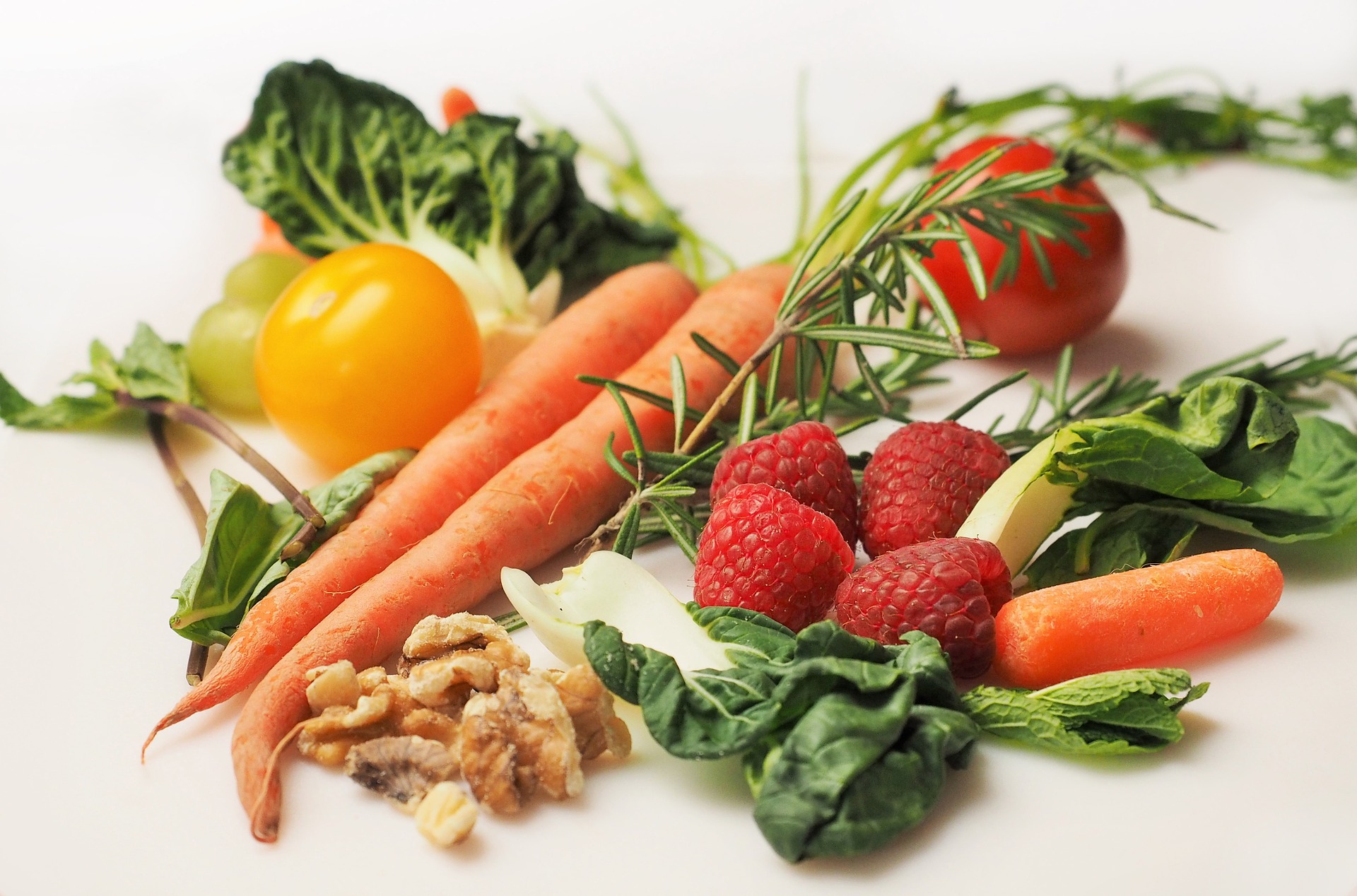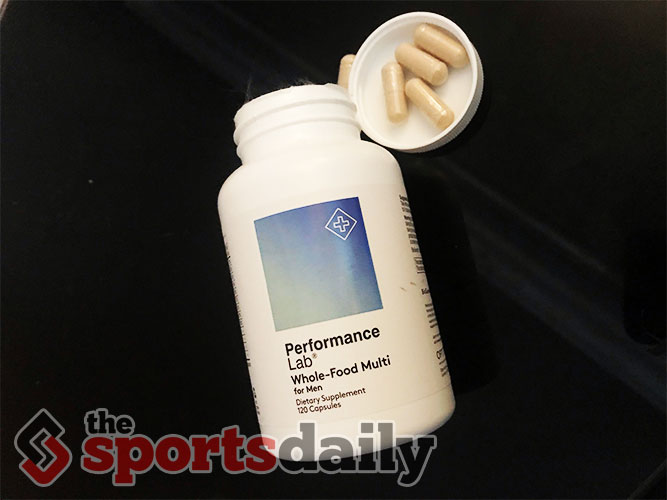Bacteria are like bugs. They’re wormy, squirmy, and sort of nasty, and they’re often the subject of horrific news headlines that would have us believe that the world would be better without them. Which is why we’re apt to be more grateful for antibiotics than probiotics.
But, just like bugs, if we kill off all the bacteria, we kill off all of life as we know it. In fact, we possess more bacteria in our bodies than actual human cells, which is why antibiotic abuse is such a devastating public health issue.
Turns out we need a healthy bacterial environment in our bodies to maintain proper health, particularly digestive health. The bacteria in our gut serve several purposes – from aiding in digestion to promoting immunity and even affecting mental health. Much of which is fairly common knowledge at this point.
But what isn’t common knowledge is the question: Prebiotics vs. Probiotics? – what’s the difference and which is healthier? In other words, which biotic supplement type should you buy, if you’re looking to improve your overall health?
With those questions laid out, let’s start by addressing the first one.
What’s the Difference Between Prebiotics vs. Probiotics?
While they sound nearly identical, with the exception of one vowel switcheroo, prebiotics and probiotics significantly differ in their bio-activities. Essentially, the key difference between prebiotics and probiotics are:
Prebiotics – basically, prebiotics are fiber, namely plant fibers found on the likes of chicory root, bananas, apple skins, garlic, asparagus, and so on. Technically “undigestible,” prebiotics serve as food for probiotics, undergoing fermentation by the time prebiotic fibers reach the large intestine.
Probiotics – live bacteria naturally produced through the fermentation process. These basically are the bacteria of interest when we talk gut flora and digestive health.
So, prebiotics are fibrous foods that service the health and nourishment of probiotics. Here’s an analogy: if your gut were a garden, the probiotics would be the crop-producing seeds while the prebiotics would be the fertilizer and water that helps the seeds develop and grow.
And, of course, you want those seeds to grow. Because, as we’re learning, the health of your gut microflora plays a key role in your overall health, even your mental health. But with that we need to ask: is it better to plant more probiotic seeds in our gut or tend to the ones already there?
So, Which is Better?
It isn’t exactly easy to 100% declare one better over the other for all cases, given the slightly distinct roles of probiotic vs. prebiotic supplements. Generally, the uses and health benefits of each are as follows:
The Benefits of Probiotics
Foods like yogurt and kombucha often advertise their probiotic content as a selling point, due to the known digestive health benefits associated with healthy gut flora. Benefits such as improved digestion, reduced intestinal discomfort (e.g., as in the case of IBS), enhanced weight-loss metabolism, and a boosted gut lining.
Typically, probiotics are outright recommended by physicians to accompany an intense antibiotic regimen, as an attempt to preserve the “good” bacteria as the medication attacks the “bad” stuff. Although, generally, live cultured probiotics are too delicate for oral consumption, due to the stomach acids’ neutralizing effects on probiotics.
The Benefits of Prebiotics
In lieu of probiotics, prebiotics are recommended for their ability to survive the neutralizing effects of stomach acid.
Plus, as food for probiotics, prebiotics don’t necessarily need to be “alive” in the way probiotics need to be in order to have a positive effect on gut health. This gives prebiotics a time advantage over probiotics as well. So, these are just a few reasons why prebiotic supplements might be a better way to go over probiotics.
Once consumed, prebiotics may benefit overall health by boosting:
Pathogen Resistance
The probiotic fermentation of prebiotic fibers indirectly reduces pH levels in the gut, creating an acidic environment that limits the grow of “bad” bacteria and pathogens. Additionally, prebiotics’ support of the gut lining helps strengthen the gut’s barrier against an unhealthy microbe invasion.
Immune Health
For one, the bolstered gut defense against microbe invasions is a form of immunity itself. Plus, prebiotics may help enhance production and activity of the lymphocytes and macrophages, two immune cells that are incredibly important to the body’s overall immune system.
Nutritional Status
An acidic environment not only reduces the activity of pathogens in the gut but also promotes the absorption of nutritional minerals, such as magnesium, calcium, iron, zinc, and so on. Mineral intake doesn’t often translate to mineral absorption, so improved digestion rates of these minerals is an underappreciated aspect of nutritional health. Not to mention that the bacteria supported by prebiotics also help synthesize B vitamins and vitamin K in the gut.
Microbiome-Gut-Brain Axis
Often referred to as the “Second Brain,” the gut’s neural network is an important factor to mental health, which is why eating crappy food may give you a crappy outlook on life. Eating healthier is one way to significantly improve mental health. Another way is to supplement prebiotics that optimize the microbiome-gut-brain axis, or the gut-brain connection.
Natural Sources of Prebiotics and Probiotics
I already mentioned a few natural food sources of prebiotics and probiotics. Respectively, the natural dietary sources of prebiotics and probiotics include:
Prebiotic Foods
Chicory root, apple skins, bananas, Jerusalem artichoke, garlic, dandelion greens, leeks, onions, asparagus, barley, oats, flaxseeds, burdock root, wheat bran – these are several of the most prebiotic-rich foods. And it’s worth noting that to attain their prebiotic content, it’s best to eat these foods raw, as cooking denatures the foods’ prebiotics.
Probiotic Foods
The most referenced probiotic foods include yogurt, sauerkraut, kombucha, miso, kefir, kimchi, tempeh, pickles, natto, raw cheese, apple cider vinegar (I love me some apple cider vinegar), traditional buttermilk, and raw milk. Really, it isn’t too hard to find probiotic-enriched food items at the store anymore, but again: the probiotics must be alive to work, and there’s really no 100% guarantee that store-bought foods still have a live probiotic content by the time you consume them.
Do I Need Prebiotic and Probiotic Supplements?
If all these foods naturally supply prebiotics and probiotics, is it even necessary to supplement prebiotic and/or probiotic supplements?
Of course, it’s a great idea to add natural sources of probiotics into your diet. Especially if this involves substituting, say, soda for kombucha – the health benefits of this decision between two-fold. However, again, there’s no guarantee that the probiotics delivered will come “alive” upon arrival.
Not to mention, due to processing and cooking methods, it’s increasingly rare that we’re receiving sufficient prebiotic levels in our foods. (Even McDonald’s sells those skinless apple slices as a “health” option, which… c’mon, let’s see some skin, McD’s!!) So, it really isn’t a bad idea to add a prebiotic supplement to your health supplement stack, especially if you’re experiencing digestive and weight issues.
Really, whether you’re looking to lose weight or improve your anabolic nutritional status, to ameliorate your digestive issues or boost your immunity, prebiotics may help rebalance your insides…
…and, truth be told, with all the crap we throw in our systems, we could all perhaps use a bit of rebalancing.
Optimize Your Gut Health with Performance Lab Prebiotic
It’s simple: Performance Lab Prebiotic has prebiotics, and that’s it. No unnecessary fillers or additives. No bogus hybrid “energy + nootropics + fat burner!” formula gimmicks. Just straight-up chicory root-sourced prebiotics, supplied in green Plantcaps® capsules for a clean delivery.
Altogether, Performance Lab Prebiotic improves gut microflora, digestion, immunity, and metabolic health with the following potency-enhanced formula.
Performance Lab Prebiotic Ingredients
Inulin-FOS (as Orafti® Synergy1)
Inulin-FOS (Fructo-Oligo-Saccharides) are found in several foods, yet, as suggested above, chicory root is one the more concentrated sources of these gut-healthy carbohydrates. Essentially, this Orafti® Synergy1 blend of inulin, a starchy fiber, and FOS, a short-chain saccharide molecule, supplies these two prebiotic fibers in an active, concentrated form, the likes of which you won’t find under the usual processed, cooked conditions.
Here’s how inulin-FOS works: once consumed, the fiber combo passes through the gut until its consumed by Bifidobacterium, a competitive strain of bacteria that thrives on the sugars provided by inulin-FOS. By nourishing Bifidobacterium, inulin-FOS stimulates this probiotic’s growth, boosting the Bifidobacterium count along the intestinal lining for enhanced gut defense and health.
Plus, thanks to Bifidobacterium’s competitive nature, this bacterium may outcompete weaker, “bad” strains of bacteria, absorbing inulin-FOS’s nutritional content for a greater good:bad bacteria ratio in the gut.
Inulin-FOS Microflora Support
Again, the key advantage of prebiotics over probiotics is oral bioavailability. Probiotics often fail to survive the stomach’s acidity, whereas prebiotics are resilient. This is especially true of inulin-FOS, which may successfully pass through the small intestine undigested to benefit the bacterial microflora found in the large intestine. This means that inulin-FOS selectively supports the probiotic strains that matter most to our digestive health.
Digestion, regular bowel movements, intestinal comfort – much depends on the status of Bifidobacterium, the strain benefited by inulin-FOS supplementation. “Good” probiotics, such as Bifidobacterium, supply enzymes required for the efficient breakdown and absorption of key nutrients in the gut.
Conclusion
No guts, no glory, or something like that, right? Well, no doubt that Performance Lab Prebiotic helps with the guts part – and so it stands to reason that Performance Lab Prebiotic also helps with glory stuff as well!
This actually isn’t much of a stretch: as much as we know about diet and digestive health, we still don’t quite appreciate how important these things are to our overall health and wellbeing. In fact, I’d argue that changes in diet are far more monumentally significant lifestyle changes than any changes in occupation or belief systems or what have you.
But, of course, a sound diet fails to translate to a sound body in the absence of healthy digestion. And that’s where prebiotics come into play: prebiotics optimize your digestive health to ensure that all that nutritional goodness turns into bodily goodness – i.e., glory, baby.
By encasing its formula in 100% gluten-free, non-GMO capsules, Performance Lab Prebiotic pumps up the potency of its prebiotics without ironically clogging up the digestive track with a bunch of junk additives. For real, take a look at any run-of-the-mill health supplement’s “Other Ingredients” list. Research any one of those additives and their impact on GI health.
It’s unreal how many “health” supplements mess up your guts with that stuff.
The Next Step
Okay, before I let you go: if you want to take your amped up digestive health to the next, glorious level, try stacking Performance Lab Prebiotic with Performance Lab Whole-Food Multi, a nature-identical vitamin + mineral stack for all-around healthy performance and nutritional status. With two distinct stacks, one for men and one for women, Performance Lab Whole-Food Multi supplies a comprehensive list of food-cultured micronutrients for both physical and mental nourishment.
By opting for a more natural, food-cultured process, Whole-Food Multi sustains other natural co-factors attributed to whole-foods, such as more health fibers, enzymes, and antioxidants.
Combined with Performance Lab Prebiotic, the Performance Lab Whole-Food Multi stack works as a one-two punch on your nutrient levels: Punch #1) the prebiotic optimizes absorption rates of healthy minerals and vitamins, and Punch #2) the Whole-Food Multi supplies the healthy minerals and vitamins.
Bada-bing, bada-boom.
Add The Sports Daily to your Google News Feed!









